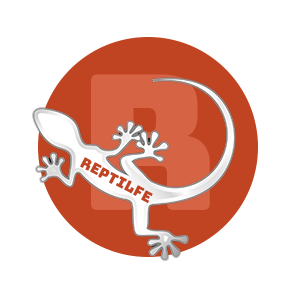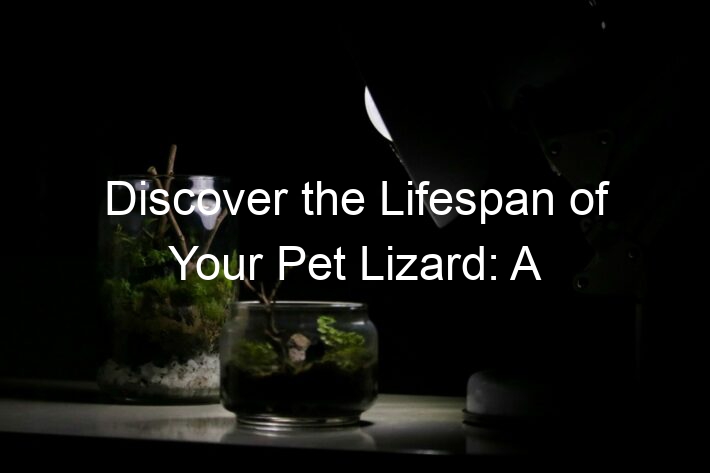Introduction to Lizard Dental Health
Just like humans, pet lizards also require proper dental care to stay healthy. In this article, we will explore the importance of dental health in lizards and some common dental issues that pet lizards often face.
- Importance of Dental Health in Lizards
- Common Dental Issues in Pet Lizards
Dental health is crucial for lizards. It’s not just about having a nice smile, but it’s also about overall health. Poor dental hygiene can lead to a variety of health issues in lizards. For instance, a lizard with dental problems may have difficulty eating, which can lead to malnutrition and other health complications.
Moreover, dental problems can also lead to infections, which can spread to other parts of the body if not treated promptly. Therefore, maintaining good dental health is essential for the well-being of your pet lizard.
There are several common dental issues that pet lizards can face. One of the most common is mouth rot, also known as stomatitis. This is a bacterial infection that can cause inflammation and ulcers in the mouth. If left untreated, it can lead to serious health problems.
Another common issue is broken or loose teeth. Lizards can break their teeth while eating or due to some kind of trauma. Loose or broken teeth can cause discomfort and difficulty in eating, and they can also become infected if not treated properly.
Lastly, lizards can also suffer from periodontal disease, which is a condition that affects the gums and bones that support the teeth. This can lead to tooth loss and other serious health issues if not addressed promptly.
In conclusion, dental health is an essential aspect of a pet lizard’s overall health. By understanding the importance of dental health and being aware of the common dental issues, you can ensure that your pet lizard stays healthy and happy.
Understanding Your Pet Lizard’s Dental Structure
Just like humans, lizards also have a unique dental structure. Understanding this structure can help you provide better care for your pet lizard. In this section, we will discuss the types of teeth in lizards and how they grow and change over time.
- Types of Teeth in Lizards
Lizards have a variety of teeth types, depending on their species. Some have small, sharp teeth for catching and holding onto prey. Others have flat, broad teeth for crushing and grinding plant material. Here are a few examples:
| Species | Type of Teeth |
|---|---|
| Bearded Dragon | Small, sharp teeth |
| Blue Tongue Skink | Flat, broad teeth |
| Green Iguana | Sharp, serrated teeth |
Remember, the type of teeth your lizard has can tell you a lot about what they should be eating.
- How Lizard Teeth Grow and Change
Unlike humans, lizards have the ability to regrow their teeth. This process is known as polyphyodonty. A lizard can lose and regrow its teeth many times throughout its life. This is a natural process and is not a cause for concern.
However, it’s important to note that not all lizards regrow their teeth at the same rate. Some may take a few weeks, while others may take several months. The rate at which a lizard regrows its teeth can depend on factors like its age, health, and diet.
It’s also worth noting that as a lizard grows, its teeth may change in size and shape. This is a normal part of their development and growth.
In conclusion, understanding your pet lizard’s dental structure can help you provide better care for them. It can also help you identify any potential dental health issues early on. So, make sure to keep a close eye on your pet lizard’s teeth and consult with a vet if you notice any changes.
Essential Pet Lizard Care: Focusing on Dental Health
When it comes to caring for your pet lizard, dental health is a critical aspect that often gets overlooked. However, it’s essential to remember that a healthy mouth contributes significantly to the overall well-being of your pet. Let’s delve into the importance of proper feeding for maintaining healthy lizard teeth.
Proper Feeding for Healthy Lizard Teeth
Feeding your pet lizard the right diet is a crucial step towards ensuring their dental health. The food your lizard consumes can significantly impact their teeth, making it essential to choose their diet carefully.
- Choosing the right diet for your lizard
- How diet impacts dental health
Every species of lizard has unique dietary needs. Some are insectivores, like the Bearded Dragon, while others, like the Green Iguana, are herbivores. It’s essential to research your specific type of lizard and provide a diet that suits their natural eating habits. For instance, a diet rich in calcium and phosphorus is beneficial for most lizards as these nutrients contribute to strong, healthy teeth.
The diet you provide your lizard can directly impact their dental health. For example, a diet lacking in essential nutrients can lead to weak teeth and potential dental problems. On the other hand, a balanced diet can help maintain strong teeth and prevent oral diseases. It’s also important to note that hard, crunchy foods can help naturally clean your lizard’s teeth, reducing the risk of plaque buildup.
In conclusion, the diet you provide your lizard plays a pivotal role in their dental health. By choosing a diet that aligns with their natural eating habits and provides essential nutrients, you can help ensure your lizard’s teeth remain strong and healthy.
| Lizard Type | Diet | Benefit to Dental Health |
|---|---|---|
| Bearded Dragon | Insectivore | Crunchy insects help clean teeth naturally |
| Green Iguana | Herbivore | Fruits and vegetables provide essential nutrients for strong teeth |
Lizard Teeth Cleaning: A Crucial Part of Pet Lizard Care
Just like humans, lizards also need their teeth cleaned regularly. This is a crucial part of pet lizard care that often gets overlooked. But, how do you safely clean your lizard’s teeth? And what are the signs that your lizard’s teeth need cleaning? Let’s dive into these topics.
- How to safely clean your lizard’s teeth
- Signs that your lizard’s teeth need cleaning
Firstly, it’s important to understand that cleaning a lizard’s teeth is not the same as brushing your own. Lizards have a different dental structure, and using a toothbrush could harm their gums. Instead, use a soft, damp cloth or a cotton swab. Gently rub the cloth or swab over your lizard’s teeth to remove any food particles or plaque. Always be gentle and patient, as your lizard may not be used to this process. It’s also crucial to use clean, fresh water – never use toothpaste or other human dental products, as these can be harmful to lizards.
Just like with humans, there are signs that your lizard’s teeth may need cleaning. If you notice a change in your lizard’s eating habits, such as refusing food or having difficulty eating, this could be a sign of dental issues. Bad breath is another common sign. Additionally, if you see any discoloration or buildup on your lizard’s teeth, it’s time for a cleaning. Remember, regular dental care can help prevent these issues and keep your lizard healthy.
In conclusion, dental care is an essential part of pet lizard care. By learning how to safely clean your lizard’s teeth and recognizing the signs that a cleaning is needed, you can help ensure your pet’s overall health and happiness.
Reptile Dental Care: Beyond the Basics
As a reptile owner, you’ve likely mastered the basics of lizard dental care. But to ensure your pet’s oral health, it’s important to go beyond the basics. Here, we will delve into advanced dental tips for lizards.
Advanced Dental Tips for Lizards
When it comes to your pet lizard’s dental health, there are two key areas to focus on: knowing when to seek professional care and taking preventive measures to avoid common dental issues.
- When to Seek Professional Dental Care for Your Lizard
- Preventive Measures for Common Dental Issues
Just like humans, lizards can experience dental problems that require professional attention. If your lizard shows signs of discomfort while eating, or if you notice swelling, bleeding, or discoloration in their mouth, it’s time to consult a vet. Remember, early detection can prevent serious health issues.
Prevention is always better than cure, especially when it comes to your pet’s health. Regularly cleaning your lizard’s habitat can prevent the growth of harmful bacteria that can lead to dental issues. Providing a balanced diet rich in calcium can also help maintain strong teeth and prevent dental diseases. Lastly, regular check-ups with a reptile vet can help detect potential issues early on.
By understanding when to seek professional care and taking preventive measures, you can ensure your lizard’s dental health is in top shape. Remember, a healthy mouth contributes to a healthy and happy pet lizard.
Case Study: Maintaining Lizard Dental Health
In this section, we’ll delve into a real-life example of a successful dental care routine for a pet lizard. We will also share the lessons learned and key takeaways from this case study, which can be beneficial for all lizard owners.
- Example of a successful dental care routine for a pet lizard
- Lessons learned and key takeaways
- Feed your lizard a balanced diet rich in calcium and phosphorus.
- Regularly check your pet’s mouth for signs of dental issues.
- Use a soft toothbrush to clean your lizard’s teeth.
- Take preventive measures to avoid common dental problems.
- Consult with a reptile veterinarian if you notice any abnormalities.
Meet Sam, a pet lizard owner who has successfully maintained his pet’s dental health. Sam’s routine includes a balanced diet, regular dental checks, and preventive measures. He feeds his lizard a diet rich in calcium and phosphorus, which are essential for strong teeth. He also ensures his pet gets enough sunlight for vitamin D, which aids in calcium absorption.
Sam regularly checks his lizard’s mouth for signs of dental issues, such as swollen gums, discoloration, or loose teeth. He uses a soft toothbrush to gently clean the lizard’s teeth and remove any food particles. If he notices any abnormalities, he immediately consults with a reptile veterinarian.
Lastly, Sam takes preventive measures to avoid common dental issues. He avoids feeding his lizard hard or sharp foods that can damage its teeth. He also provides chew toys to help keep the lizard’s teeth clean and healthy.
From Sam’s experience, we can learn the importance of a balanced diet, regular dental checks, and preventive measures in maintaining a pet lizard’s dental health. It’s crucial to monitor your pet’s mouth regularly and seek professional help when needed. Also, providing a safe and stimulating environment can help prevent dental issues.
Key takeaways from this case study include:
Lizard Oral Care: A Comprehensive Approach
Just like humans, lizards need regular dental care to maintain their overall health. This comprehensive approach to lizard oral care involves regular check-ups and early detection of potential dental issues. Let’s delve into these two crucial aspects.
- Importance of regular check-ups
- How to spot potential dental issues early
Regular check-ups are an essential part of lizard oral care. They help ensure that your pet lizard’s mouth is healthy and free from any issues. During these check-ups, a vet can examine your lizard’s mouth, teeth, and gums for signs of disease or damage. Regular check-ups also provide an opportunity to clean your lizard’s mouth, removing any build-up of food or bacteria that could lead to problems down the line.
According to a study by the American Veterinary Medical Association, regular dental check-ups can help prevent up to 85% of serious dental issues in pet lizards. This statistic highlights the importance of regular check-ups in maintaining your lizard’s oral health.
Early detection of potential dental issues is another critical aspect of lizard oral care. By knowing what to look for, you can spot problems before they become serious and take action to address them.
Signs of potential dental issues in lizards can include a change in eating habits, bad breath, red or swollen gums, and visible plaque or tartar on the teeth. If you notice any of these signs, it’s important to consult with a vet as soon as possible. Early treatment can often prevent minor issues from becoming major problems, improving your lizard’s oral health and overall quality of life.
In conclusion, a comprehensive approach to lizard oral care involves regular check-ups and early detection of potential dental issues. By following these guidelines, you can help ensure that your pet lizard maintains a healthy mouth and enjoys a long, happy life.
Dental Hygiene for Pet Lizards: Final Thoughts
As we wrap up our comprehensive guide on dental hygiene for pet lizards, it’s crucial to remember the key points we’ve discussed. Let’s revisit some of the essential dental care tips for lizards and why maintaining good dental health in your pet lizard is so important.
- Recap of essential dental care tips for lizards:
- Encouragement for maintaining good dental health in pet lizards:
Firstly, understanding your pet lizard’s dental structure is the foundation of good dental care. Remember, lizards have unique dental structures, and their teeth are designed for specific diets. Regularly checking your lizard’s mouth for signs of disease or discomfort is a must.
Secondly, a balanced diet plays a vital role in your lizard’s dental health. Foods rich in calcium and vitamin D3 promote strong teeth and healthy gums. Avoid feeding your pet lizard hard or sharp foods that can damage their teeth.
Lastly, remember that professional veterinary care is essential. Regular check-ups can help detect any dental issues early, and your vet can provide appropriate treatment to prevent further complications.
Keeping your pet lizard’s teeth healthy may seem like a daunting task, but with consistent care and attention, it can become a routine part of your pet care regimen. Remember, good dental health is not just about preventing disease; it also contributes to your pet’s overall well-being and quality of life.
As a responsible pet owner, you have the power to ensure your pet lizard lives a long, healthy, and happy life. By prioritizing their dental health, you’re taking a significant step towards achieving this goal. So, keep up the good work, and remember, your pet lizard is counting on you!
In conclusion, dental hygiene for pet lizards is a topic that deserves our attention and care. By understanding their unique dental structure, providing a balanced diet, and seeking regular veterinary care, we can ensure our pet lizards enjoy the best possible dental health. Let’s continue to learn, grow, and provide the best care for our scaly friends!




